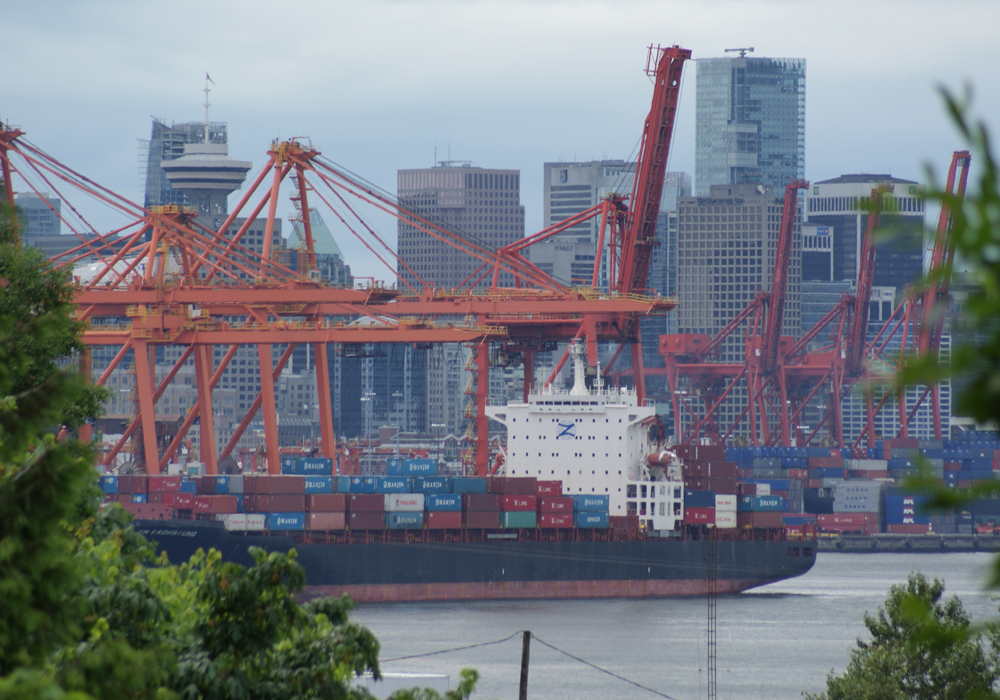VANCOUVER — Canada’s largest railway company strongly defended its performance at the Port of Vancouver yesterday, telling a panel of investigators from the Canadian Transportation Agency that rail delays and congestion at Canada’s busiest marine port in late 2018 were caused by factors beyond the company’s control.
Senior managers from Canadian National Railway suggested that inconsistent rail car unloading operations at some Vancouver area terminals — particularly those handling forestry products — contributed to congestion in other parts of the Vancouver rail network and impaired fluidity, resulting in service delays for other shippers.
Read Also

Farming Smarter receives financial boost from Alberta government for potato research
Farming Smarter near Lethbridge got a boost to its research equipment, thanks to the Alberta government’s increase in funding for research associations.
Company representatives told the CTA that some shippers and terminals “have not and will not take steps to make sure inbound (rail car) flows match (terminal) unload capacity,” a scenario that turns CN operating yards into “parking lots” for loaded rail cars waiting to be delivered.
The company also defended its decision to use freight embargoes and embargoes with permits as a means of controlling incoming rail car traffic, saying embargoes were the most effective way to relieve pressure in CN railyards and restore fluidity.
“CN would prefer that shippers and terminals … manage their own traffic flows, but our experience is that this does not happen,” said Shauntelle Paul, CN’s vice-president of network operations.
“Therefore, the only mechanism available to manage these types of flows is an industry process … an embargo with permits.”
Congestion and rail car backlogs began to develop at some points in the Vancouver area rail network in late October and early November and worsened throughout much of December, the CTA panel heard this week.
In mid-January, the CTA launched an investigation into the causes of rail service disruptions in the Vancouver area.
The investigation, the first of its kind initiated by the CTA, was endorsed earlier this year by federal Transportation Minister Marc Garneau.
A panel of investigators led by CTA chair Scott Streiner gathered information during two days of oral testimony in Vancouver this week.
The agency heard from shippers, commodity groups, Port of Vancouver officials and railway companies, including CN and Canadian Pacific Railway).
Representatives from CN have steadfastly denied insinuations that the company breached its service obligations under the Canada Transportation Act or discriminated against certain shippers.
According to a preliminary report prepared by the CTA, a total of 15 freight embargoes were imposed in late 2018, including 12 by CN and three by CP.
Among other things, the CTA investigation was aimed at determining if rail embargoes put in place represented discriminatory actions against certain shippers or commodities.
In its oral presentation, CN said it issued two categories of freight embargoes in late 2018.
The first category involved a system of embargoes with permits imposed on BNSF interchange traffic — traffic that arrives on another carrier’s rail network and is transferred to BNSF tracks for further movement. Under that system, rail traffic was still being received but only if shippers requested a permit.
CN officials said BNSF interchange traffic arriving at the Thornton rail yard increased by 20 percent in the November-December period.
The second category of embargoes affected incoming pulp shipments.
CN said recent pulp shipments into the area had already exceeded the receiving terminals’ unload capacity. Accepting additional carloads into an already congested system would have further impeded CN’s ability to move other traffic.
Paul likened the situation to a commercial airline that sends a flight from Toronto to Vancouver but does not have clearance to land until the following week.
“You can circle the airport for a week or you can decide not to allow the plane to take off from Toronto,” she said.
“It was critical and necessary to take the action that we did,” added Doug Ryhorchuk, CN’s vice-president for the western region.
The company needs all supply chain partners to have consistent investment in their terminals, he added.
Doug Hodson, a transportation lawyer representing CN, questioned the “procedural fairness” of the CTA investigation, suggesting that no specific case was levelled against the company.
CN was placed in the “unfair position” of having to defend its performance against generalized, unsubstantiated complaints and anecdotal information that implied wrong-doing.
“The railways have a fundamental right to know the case being levelled against them,” Hodson said.
“There must be a particularized allegation of breach.”
Contact brian.cross@producer.com


















